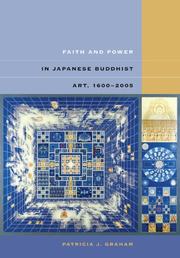| Listing 1 - 10 of 13 | << page >> |
Sort by
|
Book
ISBN: 9780231157285 0231157282 9780231157292 0231157290 9780231528658 0231528655 1281897582 9786613792532 9781281897589 6613792535 Year: 2011 Publisher: New York Columbia University Press
Abstract | Keywords | Export | Availability | Bookmark
 Loading...
Loading...Choose an application
- Reference Manager
- EndNote
- RefWorks (Direct export to RefWorks)
Kojin Karatani, one of Japan's most influential thinkers, wrote the essays collected in History and Repetition during a period of radical historical change, triggered by the collapse of the Cold War order and the death of the Sh?wa emperor in 1989. Through an original reading of Marx, Karatani developed a theory of history based on the repetitive cycle of crises attending the expansion and transformation of capital. His work led to a rigorous theoretical analysis of political, economic, and literary forms of representation-joined by a detailed, empirical study of Japan's modern history-th
Historiography. --- Japan --- History --- Japan - History - 1868- - Historiography. --- Japan -- History -- 1868- -- Historiography.

ISBN: 0807854581 0807827851 9780807854587 080786319X 9798890877482 Year: 2003 Publisher: Chapel Hill: University of North Carolina press,
Abstract | Keywords | Export | Availability | Bookmark
 Loading...
Loading...Choose an application
- Reference Manager
- EndNote
- RefWorks (Direct export to RefWorks)
Buddhism --- Orientalism. --- Missions. --- History --- World's Parliament of Religions --- Buddhism - Missions. --- Buddhism - Japan - History - 1868-1945.
Book
ISBN: 2218002043 9782218002045 Year: 1970 Volume: 1 Publisher: Paris: Hatier,
Abstract | Keywords | Export | Availability | Bookmark
 Loading...
Loading...Choose an application
- Reference Manager
- EndNote
- RefWorks (Direct export to RefWorks)
Japan --- History --- Civilization --- Japan - History - Restoration, 1853-1870 --- Japan - History - 1868 --- -Japan - Civilization - 1868 --- -Japan
Book
ISSN: 09152822 Year: 2012 Publisher: Kyoto : International Research Centre for Japanese Studies,
Abstract | Keywords | Export | Availability | Bookmark
 Loading...
Loading...Choose an application
- Reference Manager
- EndNote
- RefWorks (Direct export to RefWorks)

ISBN: 9780824831912 9780824831264 0824831268 0824831918 0824862465 1435666569 9780824862466 9781435666566 Year: 2007 Publisher: Honolulu: University of Hawai'i Press,
Abstract | Keywords | Export | Availability | Bookmark
 Loading...
Loading...Choose an application
- Reference Manager
- EndNote
- RefWorks (Direct export to RefWorks)
Faith and Power in Japanese Buddhist Art explores the transformation of Buddhism from the premodern to the contemporary era in Japan and the central role its visual culture has played in this transformation. Although Buddhism is generally regarded as peripheral to modern Japanese society, this book demonstrates otherwise. Its chapters elucidate the thread of change over time in the practice of Buddhism as revealed in temple worship halls and other sites of devotion and in imagery representing the religion’s most popular deities and religious practices. It also introduces the work of modern and contemporary artists who are not generally associated with institutional Buddhism and its canonical visual requirements but whose faith inspires their art.The author makes a persuasive argument that the neglect of these materials by scholars results from erroneous presumptions about the aesthetic superiority of early Japanese Buddhist artifacts and an asserted decline in the institutional power of the religion after the sixteenth century. She demonstrates that recent works constitute a significant contribution to the history of Japanese art and architecture, providing evidence of Buddhism’s compelling presence at all levels of Japanese society and its evolution in response to the needs of new generations of supporters.
Buddhism - Japan - History - 1600-1868. --- Buddhism - Japan - History - 1868-1945. --- Buddhism - Japan - History - 1945 --- -Buddhist arts - Japan. --- Buddhist arts --- Buddhism --- Arts, Buddhist --- Arts --- History

ISBN: 0582494087 0582494079 9780582494084 Year: 1989 Publisher: London: Longman,
Abstract | Keywords | Export | Availability | Bookmark
 Loading...
Loading...Choose an application
- Reference Manager
- EndNote
- RefWorks (Direct export to RefWorks)
History of Asia --- anno 1800-1999 --- Japan --- Japon --- History --- Histoire --- 952.03 --- Geschiedenis van Japan: keizerrijk (1868-1946) --- 952.03 Geschiedenis van Japan: keizerrijk (1868-1946) --- Japan - History - 1868 --- -Japan
Book
ISBN: 2080649515 9782080649515 Year: 1987 Publisher: Paris: Flammarion,
Abstract | Keywords | Export | Availability | Bookmark
 Loading...
Loading...Choose an application
- Reference Manager
- EndNote
- RefWorks (Direct export to RefWorks)
Capitalism --- Business ethics --- Capitalisme --- Morale des affaires --- Technological innovations --- Japan --- Economic conditions --- Civilization --- Western influences --- History --- 308 <520> --- 338 <52> --- 658 <52> --- Technological innovations - Japan --- Japan - Economic conditions --- Japan - Civilization - Western influences --- Japan - History - 1868 --- -Capitalism --- -308 <520>
Book
ISBN: 9781433101403 1433101408 Year: 2008 Volume: 270 Publisher: New York (N.Y.): Lang,
Abstract | Keywords | Export | Availability | Bookmark
 Loading...
Loading...Choose an application
- Reference Manager
- EndNote
- RefWorks (Direct export to RefWorks)
"The remarkable group of Japanese Buddhists who traveled to Chicago's Columbian Exposition to participate in the 1893 World's Parliament of Religions combined religious aspirations with nationalist ambitions. Their portrayal of Buddhism mirrored modern reforms in Meiji, Japan, and the historical context of cultural competition on display at the 1893 World's Fair. Japan's primary exhibit, the Ho-o, or phoenix, Pavilion, provided an impressive display of traditional culture as well as apt symbolism: for Japan's modern rise to prominence, for Buddhist renewal succeeding devastating Meiji persecution, for Mahayana revitalization following withering attacks of Western critics, and for Chicago's own resurrection from the ashes of the Great Fire. This book examines the Japanese delegates' portrayal of Mahayana Buddhism as authentically ancient, pragmatically modern, scientifically consistent, and universally salvific. The Japanese delegates were active, and relatively successful agents who seized the opportunity of the 1893 forum to further their own objectives of promoting Japan and its Buddhism to the West, repairing negative evaluations of the "great vehicle" of Buddhism, differentiating Japanese Buddhism from the Buddhism of other countries, distinguishing their tradition as the evolutionary culmination of all religions, and shaping modern Buddhism in Asia and the West."--Jacket.
Buddhism --- History --- World's Parliament of Religions --- J1800.70 --- Japan: Religion -- Buddhism -- history -- Kindai (1850s- ), bakumatsu, Meiji, Taishō --- World's Parliament of Religions. --- Parlament der Weltreligionen --- Parliament of Religions, World's --- World Parliament of Religions --- Buddhism - Japan - History - 1868-1945.
Book
ISBN: 0300058470 9780300058475 Year: 1994 Publisher: New Haven (Conn.): Yale university press,
Abstract | Keywords | Export | Availability | Bookmark
 Loading...
Loading...Choose an application
- Reference Manager
- EndNote
- RefWorks (Direct export to RefWorks)
Japan --- -Japan --- History --- -Relations --- J4810.80 --- J4810.90 --- J4811 --- J3375 --- Japan: International politics and law -- international relations, policy and security -- Gendai (1926- ), Shōwa period, 20th century --- Japan: International politics and law -- international relations, policy and security -- postwar Shōwa (1945- ), Heisei period (1989- ), contemporary --- Japan: International politics and law -- international relations, policy and security -- world and transregional --- Japan: History -- Kindai, modern -- Taishō period (1912-1926) --- -J4810.80 --- -J3375 --- Relations. --- Relations --- 1868-.... --- Foreign countries --- Japan - History - 1868 --- -Japan - Relations - Foreign countries. --- -Japan - Relations - Foreign countries

ISBN: 0395746043 9780395746042 Year: 1998 Publisher: Boston: Houghton Mifflin,
Abstract | Keywords | Export | Availability | Bookmark
 Loading...
Loading...Choose an application
- Reference Manager
- EndNote
- RefWorks (Direct export to RefWorks)
Japan --- History --- JP / Japan - Japon --- 92 --- J3370 --- J4000.70 --- J4300.70 --- J4600.70 --- Geschiedenis. --- Histoire. --- History. --- 92 Geschiedenis. --- 92 Histoire. --- 92 History. --- Geschiedenis --- Japan: History -- Kindai, modern period (1868 [1850s]- ) --- Japan: Social history, history of civilization -- Kindai (1850s- ), bakumatsu, Meiji, Taishō --- Japan: Economy and industry -- history -- Kindai (1850s- ), bakumatsu, Meiji, Taishō --- Japan: Politics and law -- history -- Kindai (1850s- ), bakumatsu, Meiji, Taishō --- Japan - History - 1868 --- -JP / Japan - Japon --- -Japan
| Listing 1 - 10 of 13 | << page >> |
Sort by
|

 Search
Search Feedback
Feedback About UniCat
About UniCat  Help
Help News
News